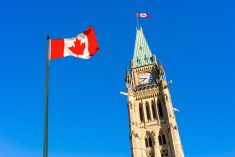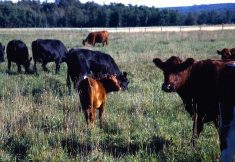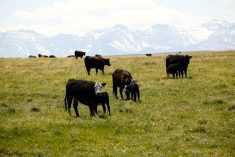On September 30 Global Affairs Canada gave the cattle industry a shot in the arm by officially opening consultations with the Canadian public over a renewed agreement with the remaining countries in the Trans-Pacific Partnership (TPP).
The original agreement among 12 Asian-Pacific countries — Australia, Brunei, Canada, Chile, Japan, Malaysia, Mexico, New Zealand, Peru, Singapore, the United States, and Vietnam — concluded on October 5, 2015, and signed February 4, 2016, was sent off the rails in January when the incoming Trump administration served notice the United States was pulling out of the agreement.
Even without the U.S., total trade among the remaining 11 countries added up to $404 billion in 2015, and together they create a market of 494 million people, with a combined GDP of US$10.2 trillion, or 13.6 per cent of global GDP.
Read Also

Pen riders still better than tech at detecting respiratory disease in feedlot cattle, says researcher
Recent research found that pen riders are better than tech at flagging signs of BRD in feedlot cattle
Given recent developments Canada still sees an opportunity to re-evaluate what opportunities may exist for Canadians, particularly small and medium-sized businesses, and for Canada to set the terms of trade in the region.
Ottawa is looking for feedback on interests and issues of importance to stakeholders regarding trade and investment with these countries, particularly Japan.
The deadline for submissions is October 30, 2017.
For much of this year the Canadian Cattlemen’s Association (CCA) has been urging Ottawa to remain in a retooled TPP or enter into bilateral negotiations on a free trade agreement with Japan, to put Canadian beef back on a more even footing with Australia. According to the CCA Japan has indicated a preference for a multi-national solution, such as the TPP over bilateral arrangements.
Those discussions took on an added note of urgency this summer when Japan triggered an increase in the 38.5 per cent tariff on frozen beef imports to 50 per cent from all countries except those with which it has a free trade agreement.















